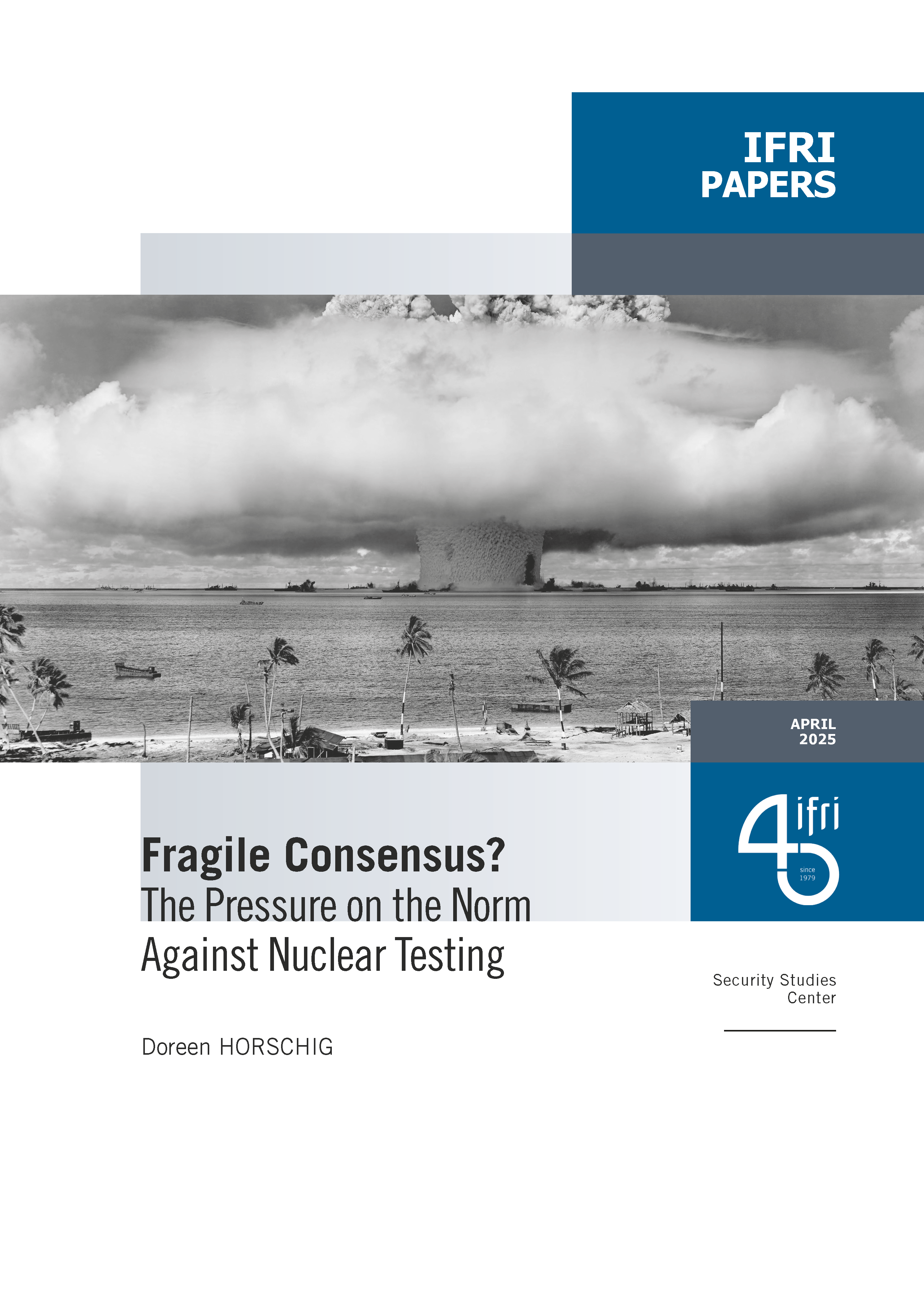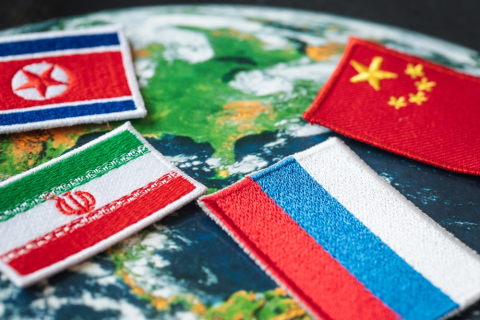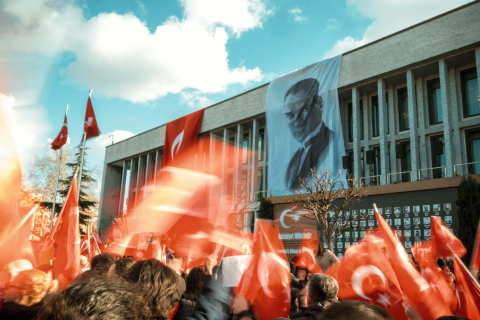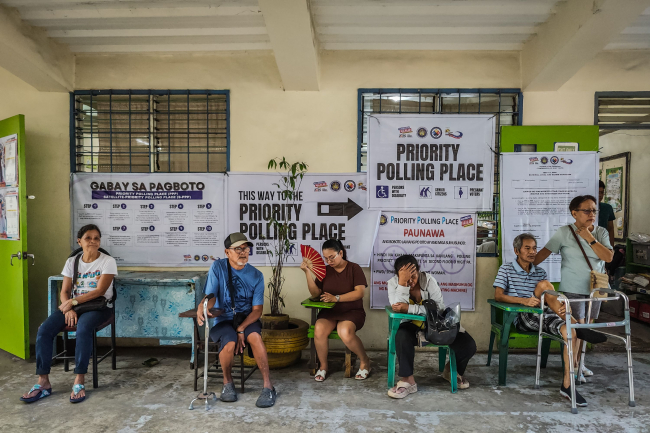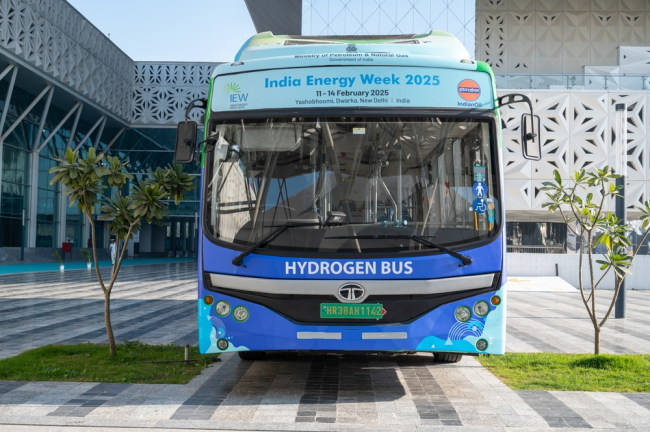Confidence! A Message from the People's Hall in Beijing

Despite the challenges that China is currently facing in the light of the global financial crisis, the major message from the People's Hall in Beijing was a positive one: confidence. The conclusion of the annual sessions of the National People's Congress (NPC) and the Chinese People's Political Consultative Conference (CPPCC) after more than ten days of debate echoed the message which the Chinese Premier WEN Jiaobao had already delivered last September in New York, when he said that ‘confidence is more important than gold or money'.
Not that gold or money do not matter anymore: This year's annual sessions were held under the sign of serious economic pressure due to the economic recession that has hit most of the importers of Chinese goods and in turn strongly affected China's export-driven economy. A very tangible consequence of the crisis is the sharp surge of unemployment that can be observed among both rural migrant workers and university graduates.
But in a time of global crisis issues concerning the Chinese economy are no longer just domestic issues. As China is increasingly integrated with the international trading system, every message from the Beijing annual sessions was closely followed and analysed by economic actors around the world. Stock markets everywhere kept swinging throughout the two sessions as investors were interpreting digest information, comments and even rumours from Beijing.
The insistence on ‘confidence' - both in China's capacity to deal efficiently with the impacts of the crisis and in its increasing recognition as influential and trustworthy partner on the global scene - was therefore to be understood as a message of calm optimism and a profession of faith in China's successful integration in the global community.
Unprecedented challenges, but continuous growth
Some weeks before the annual sessions, China's Premier had already expressed his optimism at the World Economic Forum in Davos, convinced that China would continue to grow fast and steadily despite the general economic meltdown. The mere figures confirm his saying: despite the slow-down of GDP growth, which has now dropped to the seven-year low of 6,8% in the fourth quarter of 2008, China remains one of the world's last economies that continue to grow.
It is interesting to see that the very term of ‘economic crisis' is not as commonly used in the Chinese public debate as it is in the United States or Europe. As a matter of fact, many Chinese economists suggest that China may well be facing a problem of economic decline due to external factors such as the drop of demand for Chinese products in the West, but remains overall much less exposed to the problem of breakdown in the financial system that touches all Western countries. During the annual session of the NPC, the Chinese Premier nevertheless acknowledged before over three thousand lawmakers that the country is facing ‘unprecedented difficulties and challenges'. While opinions were divided on whether a new stimulus package is needed, WEN confirmed that China has gathered sufficient ‘ammunition' for new financial injections to combat the crisis. The Congress finally decided a total package of 42 billion Yuan (6.15 billion U.S. dollars) to fight unemployment and an increase of policies for the development of rural areas (716.1 billion Yuan in 2009).
Interestingly, the government can count on the banking sector to accompany its policy measures. Unlike its European or North American counterparts, Chinese banks are not major trouble-makers but continue to lend: in January 2009 they gave out 1.6 trillion Yuan in new loans - more than they did in the entire first quarter of 2008 - thus even exceeding expectations of China Central Bank's governors. The availability of credit will not only help business and consumers, providing funds for Chinese companies' expansion abroad and easing China's relative slowdown, but most of all is perfectly in line with the message of confidence on Chinese economy
Global leader, reliable partner
Confidence is also the main theme in China's foreign policy. Foreign Minister YANG Jiechi considered 2008 as a year with a ‘good harvest' despite enormous challenges. The Beijing Olympics were seen as a unique opportunity to showcase the new image of an ‘opening, peaceful and prosperous' China in the 21st century and - despite the international pressure over the sensitive topics of Tibet and Darfur in the running-up to the Games - considered a great success. While it remains doubtful to the external observer whether international confidence has been increased through the Olympics, it is clear that the very fact of having successfully hosted, organised and dominated this truly global event has boosted self-confidence within China. On government level this increased self-confidence in handling international affairs was also visible throughout the Beijing Asia-Europe Meeting (ASEM), as well as in the decision to deploy its navy to patrol in Somalia.
The coming months will give China a perfect opportunity to show its capacity for leadership and international cooperation in times of crisis. It will have a prominent role in the forthcoming G20, G8, APEC (Asia-Pacific Economic Cooperation) as well as the environmental summit in Copenhagen. Much of the world's confidence and trust in China as reliable partner will depend on the kind of relationship Beijing will establish with the new Obama administration and its handling of the expected policy shift on issues such as diverging views on regional security, cross-straits relationship, human rights and democracy. At the same time, both countries need to assure each other (and the rest of the world) about the soundness of their economic links in order to restore absolute confidence on bilateral investment.
New-found Chinese confidence in its own influence and role in a multi-polar world is also expected to lead to a clearer and more realistic view on its relationship with Europe, both with the Union of 27 and the member states' individual (and often diverging) approaches to foreign and economic policy. Coincidently, the Chinese Premier's visit to the EU headquarters and four other European countries right after the Chinese New Year was also labeled as ‘trip of confidence', no doubt in order to underline China's continuous determination to cooperate with Europe as a ‘friend in need' on the one hand and renew a positive image of the Chinese economy to European business and the general public in a time of crisis.
2009 will also see the 60th anniversary of the establishment of the diplomatic relations between China and Russia, a commemoration that will be marked by large energy cooperation agreements and further development of bilateral relations in the areas of cultural exchange. With regards to developing countries in Africa and Asia, China's message remains one of cooperation and mutual confidence. Last but not least, China's relationship with Taiwan is also improving gradually since the new leadership under MA Ying-jeou. A new policy declaration was announced before the National People's Congress by Premier WEN Jiabao, calling for a solution for ‘cross-strait political and military issues' and for creating ‘conditions for ending the state of hostility and concluding a peace agreement between the two sides of the Taiwan Strait', a declaration greeted by a 2,11% rise of the Taipei TAIEX stock market index. Meanwhile, the service and tourism sector have already benefited from the warm-up of relationship and the relaxed rules allowing direct travel between the mainland and the island. On March 17, a cruise ship from Shanghai has brought 1600 Chinese tourists to Taiwan on a four-day, T$500 million ($14.5 million) trip. China's surging spending power has proved to be of vital importance to Taiwan's struggling travel industry and will also help promote people-to-people exchange and improve cross-straits ties.
Behind the confidence discourse
Confidence is the message China wishes to send to its citizens and to the world. Like in the Greek original, the Chinese word for ‘crisis' carries a meaning of both danger and opportunity. The current crisis, after three decades of successful ‘open door' economic reform, can be viewed as a new starting point for the government to review its economic model and development strategies. The crisis has shown that the excessive reliance and dependence on export is not a sustainable solution for Chinese economy and the necessary increase of domestic consumption has become a focal point of the debate. Confidence is certainly necessary to deal with the forthcoming challenges, but it could also be shattered by the social side-effects of the economic crisis.
Without solving the most urgent social matters, it is hard to imagine a sharp and immediate boost to domestic consumption. The lawmakers present at the annual sessions are well aware of this: the adjustment of taxation policy, for instance, was heavily discussed. The comprehensive implementation of the value-added tax (VAT) reform will cut as much as 500 billion Yuan in 2009 for enterprises and individuals together with the suspension of another 100 administrative charges. It was also decided that any stimulus package or policy to increase consumer spending should be part of a long-term strategy matching the government's overall social reform plan and focus on citizens' welfare and reduction of inequalities.
Behind the new self-confidence as global power there are, however, quite a few uncertainties and challenges for China's foreign policy. While China is increasingly careful about its international image and standing, driven by the ambition to become a good neighbour and responsible player, its leaders (followed by a blogosphere prone to bouts of nationalist fervour) continue to display regularly a certain not-so-confident nervousness and susceptibility. The rather aggressive reactions to American arms sales to Taiwan, to international criticism of the handling of the Tibetan question or even to rumours that the Peace Nobel Prize would be given to a Chinese dissident reveal that the real picture is more ambiguous than the repeated invocation of confidence suggests. China holds a lot of trump cards that could enable it to emerge as an even stronger and more influential power in the post-crisis global configuration. In the meantime, its leaders would be well advised to adopt new, more appropriate, strategies of dealing with criticism from friends and partners and thus add credibility to its confidence discourse.
Wei SHEN is professor at ESSCA, Angers, and associated researcher Centre Asie, Ifri.
Albrecht SONNTAG is in charge of the Chaire " Intégration européenne ", ESSCA Angers.
Related centers and programs
Discover our other research centers and programsFind out more
Discover all our analysesMid-term Elections in the Philippines: The Clan War Reaches New Heights
Three years after the last general and presidential elections, Filipino voters once again went to the polls on May 12, 2025, to elect their municipal and parliamentary representatives.
India’s Green Hydrogen Strategy in Action: Policy Actions, Market Insights, and Global Opportunities
India is poised to remain the world’s fastest-growing major economy, and this rapid growth is driving a sharp rise in energy demand. As the most populous country on the planet, India urgently needs to decarbonize its energy systems.

RAMSES 2024. A World to Be Remade
For its 42nd edition, RAMSES 2024 identifies three major challenges for 2024.

France and the Philippines should anchor their maritime partnership
With shared interests in promoting international law and sustainable development, France and the Philippines should strengthen their maritime cooperation in the Indo-Pacific. Through bilateral agreements, expanded joint exercises and the exchange of best practices, both nations can enhance maritime domain awareness, counter security threats and develop blue economy initiatives. This deeper collaboration would reinforce stability and environmental stewardship across the region.


